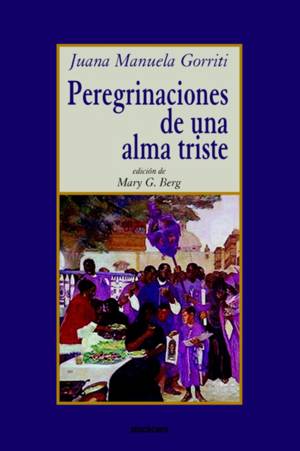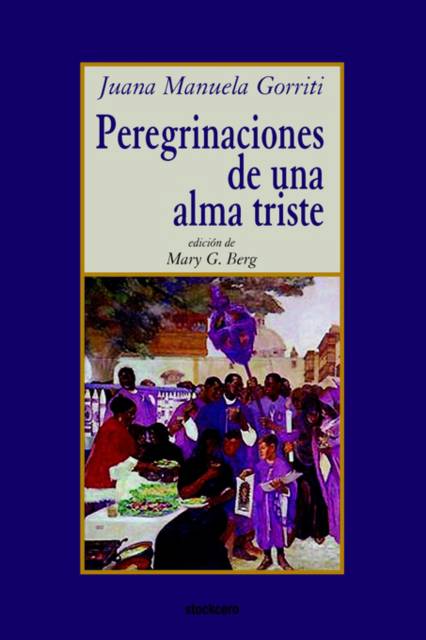
- Afhalen na 1 uur in een winkel met voorraad
- Gratis thuislevering in België vanaf € 30
- Ruim aanbod met 7 miljoen producten
- Afhalen na 1 uur in een winkel met voorraad
- Gratis thuislevering in België vanaf € 30
- Ruim aanbod met 7 miljoen producten
Zoeken
Omschrijving
In 1875, Juana Manuela Gorriti hurried to finish her new novel, Peregrinaciones de una alma triste, in order to include it in the two-volume collection, Panoramas de la vida, published in 1876, dedicated to the women of Buenos Aires. Peregrinaciones is both the story of a young woman's dramatic liberation and self-discovery, and a critical travelogue of conditions in southern South America. The narrator, Laura, tells a close woman friend about her escape from her home in Lima, where she was dying of tuberculosis, and the series of adventures that stimulated her into health, independence and energetic engagement with the welfare of others. As she travels, she witnesses the horrors and glories of 19th century society, from bandit attacks, civil wars, and indigeneous rebellions to the cruelties of slavery. She journeys through varied terrain, from mountain peaks to the jungle, where she dresses in male clothing for self-protection. At this time when national identity was being defined, Laura assesses the populations and problems of the Southern Cone nations, with the help of the friends she makes during the course of her travels. Juana Manuela Gorriti (1818-1892) is one of the best known and most eloquent 19th century writers of fiction. Born in Argentina, she went to Bolivia with her family after her Unitarian father was defeated by Juan Facundo Quiroga in 1831. She settled in Peru, began to publish stories and novels, and established a literary salon attended by Lima's leading intellectuals. Ever restless, like the protagonist of Peregrinaciones, she traveled frequently and wrote about it, very aware of changing conditions as Peru, Chile and Argentina modernized. She died in Buenos Aires, where many of her books were first published, including Sueños y realidades, Panoramas de la vida, El mundo de los recuerdos, and many others. This edition of Peregrinaciones has been updated with plentiful footnotes and a critical introduction by Mary G. Berg, author of many studies of Latin American women writers and their times. This novel would fit well into courses on Latin American narrative, women writers, Southern Cone history, gender and cultural studies, and nation-building in the nineteenth century.
Specificaties
Betrokkenen
- Auteur(s):
- Uitgeverij:
Inhoud
- Aantal bladzijden:
- 184
- Taal:
- Spaans
Eigenschappen
- Productcode (EAN):
- 9789871136421
- Verschijningsdatum:
- 14/01/2006
- Uitvoering:
- Paperback
- Formaat:
- Trade paperback (VS)
- Afmetingen:
- 152 mm x 229 mm
- Gewicht:
- 276 g

Alleen bij Standaard Boekhandel
+ 87 punten op je klantenkaart van Standaard Boekhandel
Beoordelingen
We publiceren alleen reviews die voldoen aan de voorwaarden voor reviews. Bekijk onze voorwaarden voor reviews.








